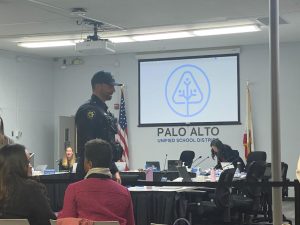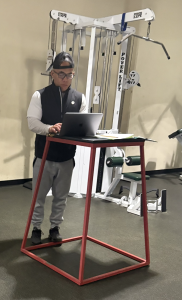Opinion: Living Skills should be required for all freshmen
May 25, 2020
Proper sex education and wellness education for teens have become increasingly important when they enter high school, as they mature and take on new life challenges. The jump from middle school often proves to be a constant process of change and new experiences, and freshmen would greatly benefit from having a course to give them the tools to navigate the rest of high school.
In one sense, they do have just this type of course: Living Skills, a semester-long course (or three-week-long summer school course) covering mental health awareness, health and wellness education, and sex and drug education.
But the course comes too late — students can’t take it until the enter 10th grade. The course would be more impactful on freshmen, as they are just entering a new phase in life and can benefit greatly from the information taught in the class. They should be provided with the tools to navigate through difficult situations and taught how to develop meaningful relationships before they get too far into high school.
Letitia Burton, a Paly Living Skills teacher for 20 years who is retiring this year, said she not only thinks Living Skills is a vital class for students to take but she also wishes it were a four-year course rather than only a semester.
“If I had my dream, if I was Queen of Palo Alto Unified, I would have a four-year Living skills requirement, and each year would get would be more age-appropriate,” Burton said. “Because your needs as a person change as you mature and go through high school. There could be a freshman version of it, but then it should be taught every year.”
Though many students may not have space in their academic schedules to take a version of Living Skills every year, a good start would be to prioritize freshmen and sophomores taking the class. According to Burton, there has been an increase in sophomores taking the class over the past few years.
“I would say over the last few years, counselors have been making more of an effort to put sophomores in Living Skills,” Burton said.
According to Burton, when she first began teaching Living Skills in the early 2000s, it used to be a course mainly for sophomores, but as students began to prioritize other courses, it became a class that was taken later on.
“It’s a high school graduation requirement,” Burton said. “But it’s also a class that colleges don’t require you to have in order to get into college. And so, it’s the kind of push-pull between, well, I need it to get out of high school, but colleges don’t need it.”
Living in an academically pressured environment, Paly students tend to focus more on what will help them be accepted into prestigious universities, like opting to take multiple Advanced Placement classes and honors classes throughout their junior and senior years and pushing Living Skills all the way to second-semester senior year as a result. Requiring Living Skills for freshmen would allow them to learn vital life skills, and be provided with wellness, sex, and drug education, while also not waiting to take the course later on in their high school career in order to graduate.









